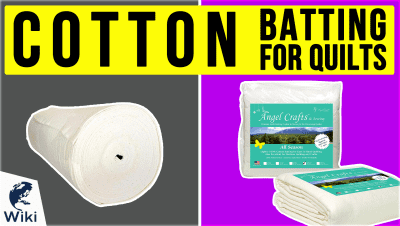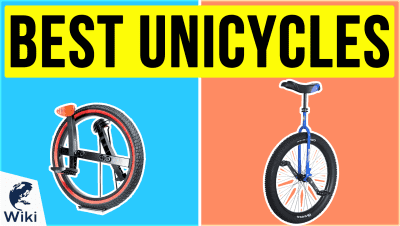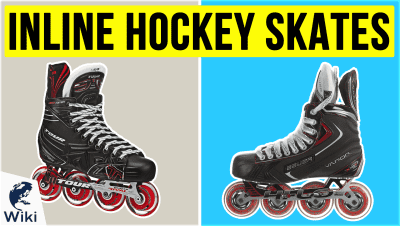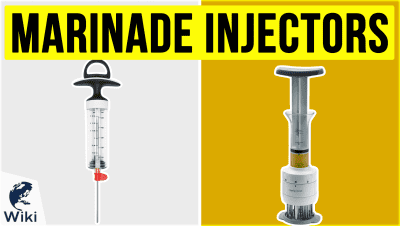6 Educational Apps And Developers Helping Kids Learn
You may remember how boring it was to watch slide shows in school and spend your time reading old textbooks when you wanted to watch DVDs or use the computer. Today's kids are no different, and educators have to compete with tablets and smartphones, but instead of competing, these producers allow teachers and parents to use technology to start kids off on a learning journey that will be educational, fun, and rewarding. This video was made with Ezvid Wikimaker.
6 Sources For Helpful Educational Tools
| Name | Focus |
|---|---|
| Literary Safari | Media studio creating content for children and families rooted in an understanding of learning science, educational standards, narrative design, and fun |
| Fingerprint | Provider of digital and streaming content for kids, including the Kidomi app, which features hundreds of puzzles, reading adventures, and games |
| Happy Atoms | Physical and digital teaching tool that lets students explore the world of molecules using plastic atom models and an app that allows them to discover the identities of the molecules they build by scanning them |
| Cogniss | Platform for building educational apps using easy templates and assessment tools that allow educators to tailor activities to individual learning journeys and use reward systems to encourage student participation |
| Magora | Web and mobile app development agency that builds functional and attractive applications like Galaxeeds, which lets students take online courses, interact with instructors, and receive prompt feedback |
| Stop, Breathe & Think | Emotional wellness platform from Tools for Peace that introduces kids to mindfulness through activities designed for specific age groups |
An Introduction to Kidomi
Toys & Games that Can Help Kids Find the Fun in Learning
- Coding Robots
- Math Games
- Mechanical Puzzles
- Cranium Games
- Science Kits
- Telescopes
- Trivia Games
- Solar System Toys
- Talking Globes
Stop, Breathe & Think at the Livestrong Stronger Weekend
In Depth
As technology has evolved, so has education. With the advent of apps, students have an exciting new way to learn, while educators can use them to take a fresh approach to teaching. In no particular order, here are six ways to connect with students, from studying molecules to practicing meditation in the classroom.
Starting off the list at #1 is Literary Safari, an independent children's studio and consulting firm. It creates inclusive media for children and families rooted in an understanding of learning science, educational standards, narrative design, and fun. Its award-winning stories, games, and curriculum are grounded in creativity, critical thinking, communication, and collaboration. It is committed to mindful designs that celebrate diversity and global citizenship.
Located in New York City, Literary Safari consults, publishes, and produces games, books, apps, and curriculum for such brands as UNESCO, Sesame Workshop, the Corporation for Public Broadcasting, Scholastic, and Benchmark Education. It works to develop ideas and concepts for emerging projects, and has a wide network of publishing, design, interactive, and educational professionals.
It works to develop ideas and concepts for emerging projects, and has a wide network of publishing, design, interactive, and educational professionals.
Coming in at #2 is Fingerprint, a leading global provider of digital content for kids. The San Francisco-based company creates custom learning platforms for customers around the world. Industry leaders in tech, edutainment, broadcast, and more, license its technology to serve up customized branded mobile networks that help better connect with families in a kid-safe and meaningful way.
Its Kidomi app brings together the world's best kid's learning entertainment content in one place. It features hundreds of puzzles, reading adventures, inventions, creations, and games to play from top global creators including Toca Boca, Crayola, Sago Sago, and Highlights for Children.
Entering the list at #3 is Happy Atoms, a physical and digital teaching tool that lets students explore the world of molecules in an intuitive, hands-on way by using plastic atom models that connect easily with magnets. The app allows them to discover the identities of the molecules they build by scanning them as well as assemble collections, and complete guided chemistry tasks.
Happy Atoms is geared toward children in junior high, though younger students can use them to jump-start their chemistry education. High school kids can utilize the system to make the subject matter more tangible, while visualizing complex molecules, and reinforcing their chemistry studies.
At #4 is Cogniss, which provides an integrated platform to build effective apps for education. Its Insights tool features simple dashboards that educators can tailor to individual learning journeys as well as identify timely opportunities for other interventions, all while protecting student privacy. The games and applications unlock educational methods and feedback systems that actively engage students and develop resilience for mastering new content.
Its STEM Explorer is a single app that teaches science, math, and related subjects for elementary school students. Players join a global adventure as they solve various challenges in their hunt for the scattered parts of a friendly alien's spaceship. Participants earn in-game currency, which they can use to purchase personalized virtual goods such as clothing, accessories, and tools.
Players join a global adventure as they solve various challenges in their hunt for the scattered parts of a friendly alien's spaceship.
At the #5 position is Magora, a web and mobile app development agency that creates tailor-made digital products for learners of all ages. It delivers tech solutions to clients across the world and builds functional and attractive applications in a customized, user-friendly platform. In addition to education, among the industries it works in include Messengers and Social Platforms, Entertainment apps, Enterprise software, and E-commerce.
Its education app, Galaxeeds, is a platform where students can take online courses, interact with instructors, and receive prompt feedback. Educators can enjoy distance learning opportunities and earn money by selling their educational videos, curriculum, books, and other media. Employers and recruiters can join the network to find talent and collaborate with teachers for professional training and skills upgrades.
Wrapping up the list at #6 is Stop, Breathe & Think, an emotional wellness platform for the under 25 generation. Its mission is to help kids, teens, and young adults build the internal strength to tackle life's ups and downs. It was born out of Tools for Peace, a non-profit dedicated to teaching the skills of mindfulness and meditation to inner-city teenagers.
Its mission is to help kids, teens, and young adults build the internal strength to tackle life's ups and downs.
Stop, Breathe & Think offers educators quick, simple mindfulness resources to create their own activities in the classroom. Downloadable kits for elementary, middle, and high school students are available and include games, guided exercises and journaling, wall art, and worksheets.














